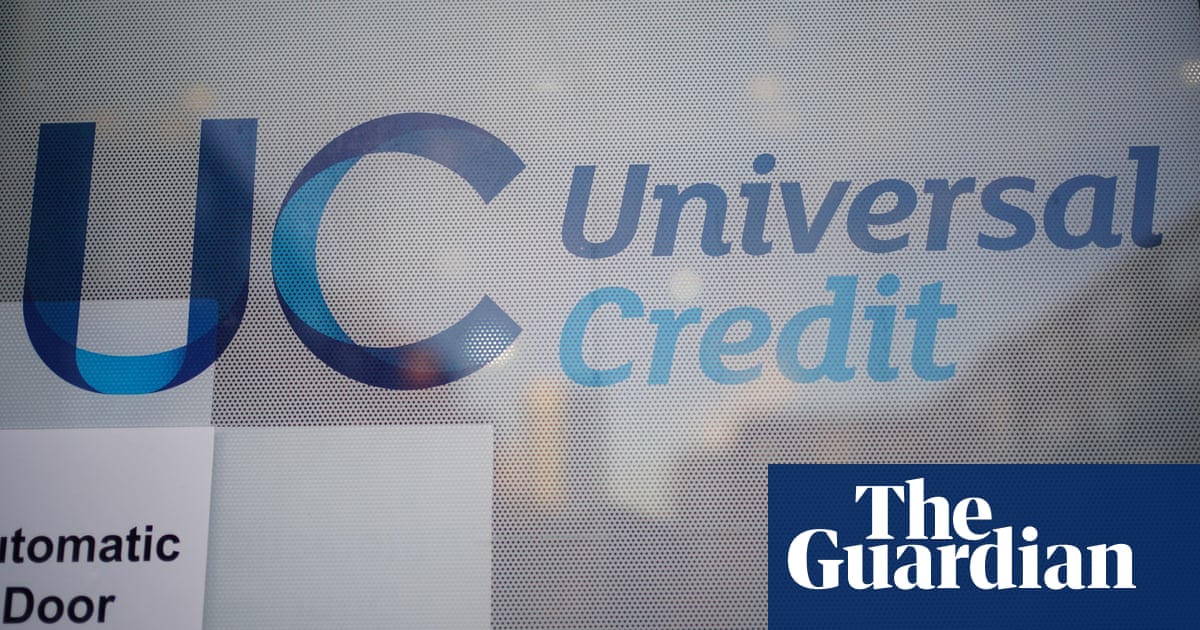Single people with long-term disability that stops them working will be much poorer after rollout, Resolution Foundation says
The rollout of universal credit is on course to make thousands of working-age disabled people significantly poorer, according to a report showing that more than 7 million people will be covered by the six-into-one benefit change before the end of the next parliament.
A single person with a long-term disability that prevents them from working is £2,800 a year worse off when they transfer to universal credit (UC), the Resolution Foundation said, adding that all single people with long-term disabilities will suffer this loss of income when the rollout of UC is completed by 2030.
The report – In Credit? – gives an overview of the huge change to the benefit system championed by the former work and pensions secretary Iain Duncan Smith during the coalition government.
Previous benefits, including income support, housing benefit and tax credits, were merged into a single payment.
The rollout of UC since 2013 has been characterised by technical delays that several parliamentary committees have criticised for driving up the cost of the changes and causing hardship for claimants.
Funding cuts after the Conservative party general election victory in 2015 added to concerns that many claimants were being pushed into poverty.
“By 2028, entitlements to UC will total around £86bn a year,” the thinktank said. “But this is £14bn less than if the government had kept the 2013-14 benefit system.
“As a result, seven in 10 working-age families eligible for means-tested benefit support will be worse off under ‘universal credit Britain’ than with the pre-reform system,” it added.
A funding boost for UC in recent years has limited the cut in income for many claimants and given a boost to others.
The main group to benefit from funding increases have been working-age households who rent, though much of the increase in weekly payments has covered soaring rent bills.
“A renting single parent who works 30 hours per week on the national living wage will be nearly £3,800 per year better off in 2024-25 than if they were on the old system,” the report found.
“Across the 2.7 million families in the private rental sector that are eligible for UC, the average gain compared to the old system is £1,200.”
Alex Clegg, an economist at the Resolution Foundation, said UC was conceived in an era of high unemployment, and was ill-equipped for a post-pandemic age when many claimants were suffering from long-term illnesses and disabilities.
“Compared to the old system, universal credit offers greater support for renters and stronger incentives to enter work,” he said. “But its original design did not anticipate there being over 2 million claimants with poor health or disabilities.
“Alongside efforts from the NHS, education, and labour market policy to address the drivers of ill-health, UC will need to change to tackle Britain’s new challenge of long-term sickness.”
A Department for Work and Pensions spokesperson said: “Universal credit has proven itself as a modern benefits system fit for the future, providing a vital safety net to millions while helping people move into work faster.
“We boosted benefits by 6.7% this month, worth £470 for 5.5 million households on universal credit.
“Work is the best path to long-term financial security and through universal credit, our £2.5bn back-to-work plan will help over a million people – including those with long-term health conditions – find, stay and succeed in work.”



Do you mind sharing what you get now to put it in context?
It is very easy to have a play with a benefits calculator to find out what reality looks like for yourself.
In-work benefits keep working people who earn less than they need to survive at or slightly above the poverty level. For people who are unable to work, due to sickness, disability or a lack of available jobs, it keeps them stuck below the poverty level with just about enough to survive but not to thrive.
As the article points out, the philosophy this system was built on was not necessarily well thought out at the time. In the post-covid era it is disastrous.
Why yes, I do mind!
Especially since it couldn’t have taken you more than a minute or two at most to look up the current rates for yourself:
PIP
ESA
What specific combination of benefits I’m personally on is not only none of your nor the general internet’s business, but is also completely irrelevant, since there is no scenario where anyone on benefits getting almost £3000 less a year would be ok. It also isn’t just about the money itself, but what being on an even lower income bracket means for my prospects of renting a home (already a significantly more difficult and expensive thing to do when you’re disabled), or having access to any financial products, and things like that.
Either way, your question is intrusive and unhelpful. Maybe in future try having a little bit of both tact and the initiative to look up readily available information for yourself before expecting someone who is personally impacted to disclose their personal information to you.